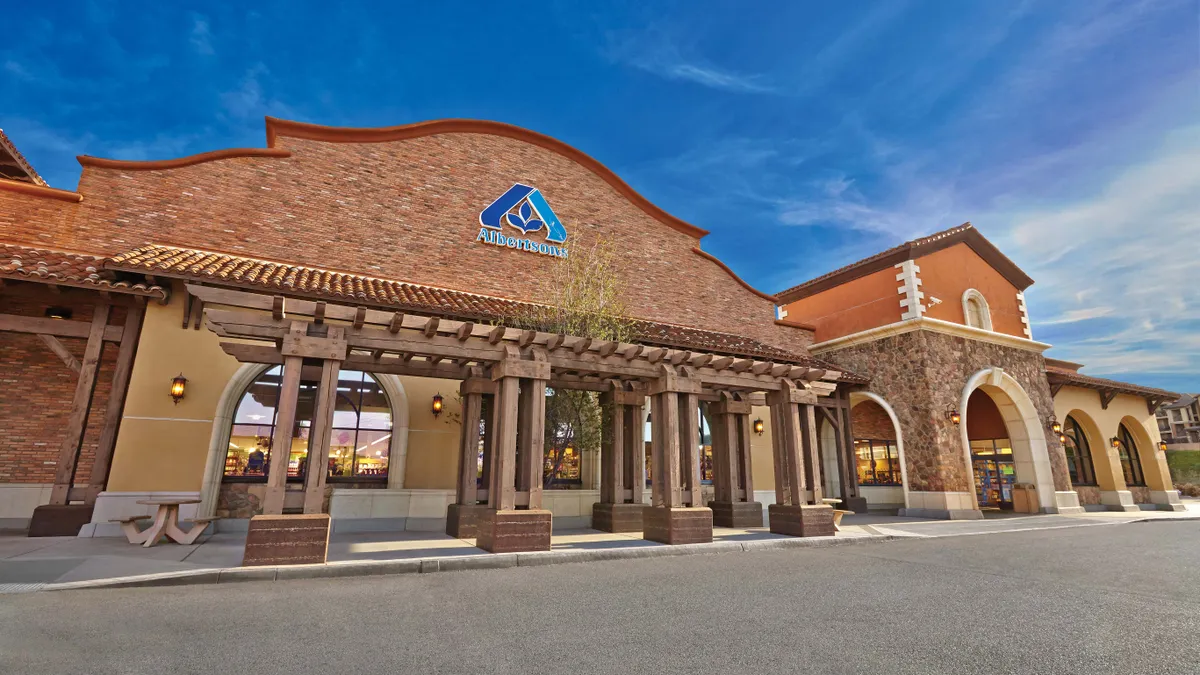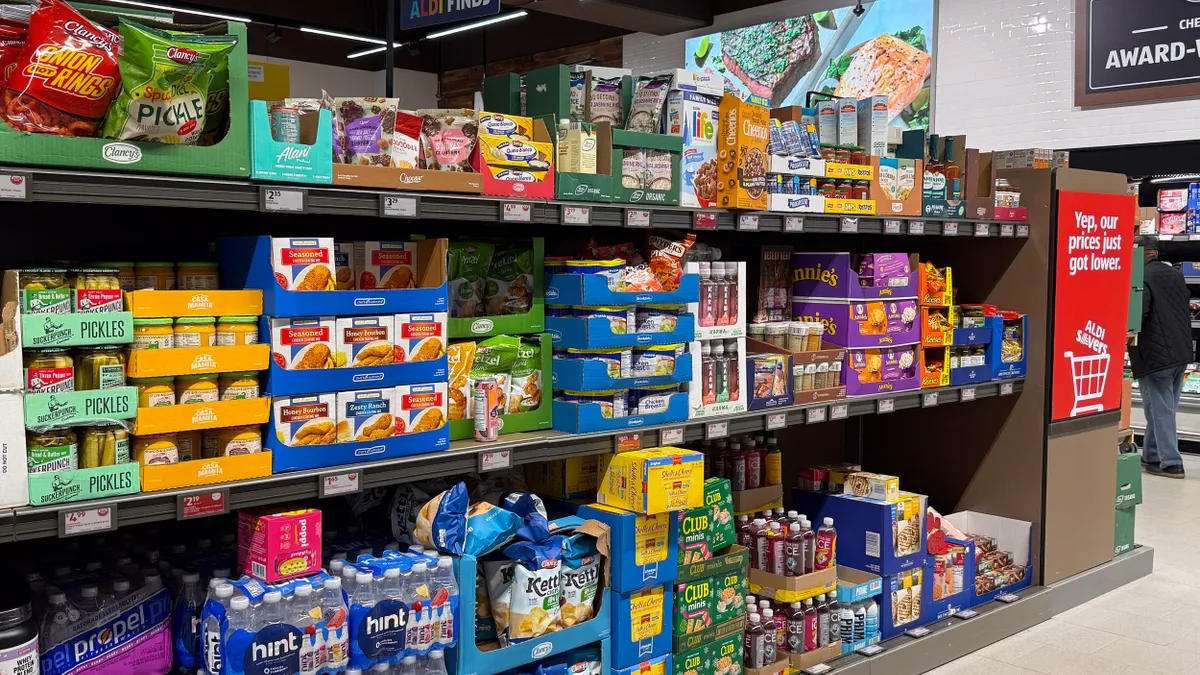The unemployment rate in the U.S. is officially below 4%, and businesses and industries around the country are facing labor shortages and reportedly struggling to fill open positions.
At the same time, grocers nationwide are on hiring sprees. Aldi is looking to hire 1,000 employees at 380 stores in eight states, with plans to add 25,000 more jobs by 2022. Schnuck Markets, which recently acquired 19 Shop ‘n Save stores from Supervalu, announced plans to fill 1,000 open positions in the St. Louis area. Dollar General recently held a career fair, and hopes to add 7,000 new jobs by the end of 2018.
Given this significant need for employees, it’s no surprise that grocers are taking measures to attract new talent and retain current staff. But what steps can retailers make to ensure they're fielding — and holding on to — the strongest workforce possible? According to experts, in what can be considered an employees’ market, grocers are going to have to move beyond wage improvements to show workers why they are the best possible employer.
Employees seek more than money
To stand out as employers of choice, grocers have been making changes both small and large. In addition to allowing its employees to start growing beards, Publix has raised its minimum wage three times this year in the wake of wage increases from retail giants Amazon, Walmart and Target. Walmart has experimented with a new dress code and expanded its family leave policy, while Kroger now offers tuition assistance to its employees.
Carlos Castelán, managing director of The Navio Group, a retail and consumer goods consulting firm in Minneapolis that has worked with grocers such as Whole Foods, told Grocery Dive in an email that from its experience staffing in-store roles with clients, his firm has found that detailed market research can be a first step towards standing out from a bevy of different options.
“It’s important to understand both the local pay rates as well as the employer’s value proposition to potential candidates,” Castelán said. “For example, with Amazon’s recent announcement that it would raise its minimum wage to $15 for all employees, the bar for talented employees is continuously raised.”
Castelán said employers should also consider candidates’ goals outside of pay, and how the role can help advance those goals. This can help an employer make an attractive offer and frame an opportunity correctly for an employee, ensuring expectations are aligned.
"With Amazon’s recent announcement that it would raise its minimum wage to $15 for all employees, the bar for talented employees is continuously raised."

Carlos Castelán
Managing director, The Navio Group
This can be a particularly useful strategy for smaller, independent grocery stores that may not have the revenue to pay wages that match those of the retail giants, sources told Grocery Dive.
Peter Schnorbach, senior director of product management at Manhattan Associates, a supply chain and omnichannel commerce firm that works with grocers such as Giant Eagle, Publix and Kroger, said that many companies are grappling with how to approach staffing in today’s labor market. Wages are a big issue, and companies need to evaluate what they pay their staff.
However, some employees, especially millennials, are looking at more than pay.
“Even though some companies are in a wage war, there’s still a lot of desire for flexibility and paid time off, which are highly valued, particularly among millennials,” Schnorbach told Grocery Dive. “I think companies need to get creative about what they’re offering to employees. Flex schedules, additional paid time off, those kinds of things seem to be driving a lot of employment decisions.”
Staffing for the holiday season
Holiday hiring also comes into play as grocers look to staff up to provide extra customer service during this busy time of year. Among grocers, Kroger is planning to hire 10,000 temporary holiday workers nationwide — after hiring 11,000 permanent employees earlier this year — while H-E-B aims to hire 1,000 workers in the Houston area.
According to a survey from Korn Ferry, more than 65% of retailers are planning to hire the same amount or more seasonal staff this year, but of those employers, nearly a fifth say they pay seasonal employees 5% to 10% less, on average, than permanent employees. This may fail to motivate prospective workers to take seasonal jobs, sources say.
Castelán recommends that grocery employers offer competitive sign-on bonuses for seasonal employees, or highlight full-time employment with benefits to continue beyond the holiday season.
“In our conversations with job candidates, the question around benefits and full-time employment continues to be a priority for many,” he said.
North State Grocery's hiring wins
In Klamath Falls, Oregon, North State Grocery held a two-day career event in July to hire staff for its new Holiday Market store. The turnout did not reflect today’s notoriously tough job market. In fact, North State Grocery saw more than 200 job seekers come through, and received around 450 applications for 48 store positions.
"We want folks who are looking for a career with the opportunity to move up, to take on more responsibility and eventually become store leaders for us... that’s the main message that we try to get out."

Doug Duggins
Director of leadership development, North State Grocery
Doug Duggins, director of leadership development for North State Grocery, said that the hype surrounding a new store in a small town helped with turnout. However, the company, which operates 23 grocery stores from Northern California to the Oregon border under the Sav-Mor Foods and Holiday Market banners, has seen good turnout at other recent career events, as well.
Duggins said the key for North State Grocery in attracting talent is positioning its job fairs not as temporary position fillers but as career days that will help the company find people with natural leadership and communication skills who can learn the grocery business and advance in the company.
“We want folks who are looking for a career with the opportunity to move up, to take on more responsibility and eventually become store leaders for us," Duggins said. "Eventually, as we grow, even into senior management positions. That’s the main message that we try to get out."
North State Grocery is also 100% employee owned, which Duggins believes is powerful. The company promotes from within and has a leadership development program in place.
“It’s a tough market out there, but I believe the reason we’re successful is because we have a business model that very few grocery retailers have,” Duggins said.
Deploying data and a labor management strategy
While companies such as North State Grocery are focusing on the personal development of individual employees, Schnorbach suggests that productivity data and an efficient labor management strategy are also critical components to successful staffing.
“It’s becoming more expensive to hire people," he said. "I think that makes it imperative that you drive productivity. All the people working for you need to be as productive as possible.”
According to Schnorbach, studies have shown that companies that don’t measure productivity operate at about a 60 to 65% productivity level. Because employers are spending more on labor and having a harder time finding employees, he said it is more important than ever for employers to track and measure productivity.
While gauging performance based on productivity data may sound impersonal, it enables employers to coach those who may not be performing well, and reward those employees who are.
"It's becoming more expensive to hire people. I think that makes it imperative that you drive productivity. All the people working for you need to be as productive as possible."

Peter Schnorbach
Senior director of product management, Manhattan Associates
“Those who are being productive or overproducing need to be rewarded," Schnorbach said. "That’s becoming more and more important as we get into this tight labor market. The leverage used to be with the employer. Now, a lot of employees feel like if they aren’t happy, they can leave. There are tons of jobs out there and they can do what they want."
When it comes to attracting and maintaining talent in the grocery industry, the shelves are fully stocked with options for employers to address their current needs and keep building strong teams in the future.





















